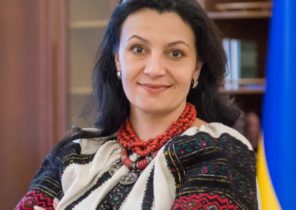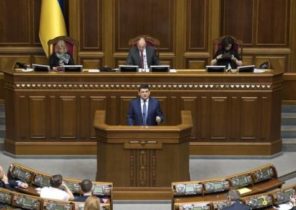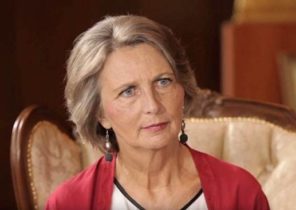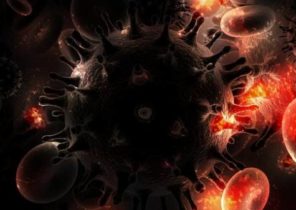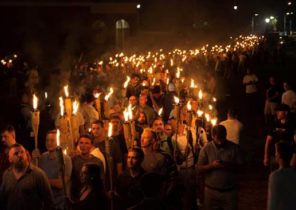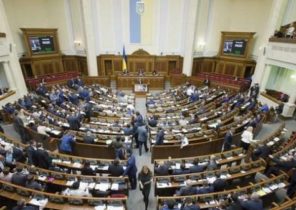During the Nazi occupation of the territory of Ukraine became the site of countless atrocities against the Jewish people. However, in a poor country that suffers from a lack of resources, there is no major Museum or memorial to the Holocaust. Although the international initiative for its establishment was launched in the year 2016, an ambitious project stalled, one critic even called it “Disneyland of the Holocaust.”
For centuries, Ukraine was the historical homeland of a significant part of European Jewry, and more than half of American Jews born in Ukraine. Almost 1.5 million Ukrainian Jews were killed in the “Holocaust by bullets”, and nearly 90% of murders on the conscience of the German troops. Babi Yar — a ravine on the outskirts of Kiev, where on September 29-30, 1941, he was shot 34 thousand Jews became a symbol of mass destruction in Eastern Europe.
Memorial centre of the Holocaust in Babi Yar, launched in 2016, apparently, will be the last major Holocaust memorial during the life of the survivors. It is expected that the costs will exceed $ 100 million. Most of the funds came from four Jewish billionaires, whose ancestors were killed at Babi Yar. Three of them are citizens of Russia. The leading role of the Russians has caused criticism because their country is occupied and annexed part of Ukrainian territory and in 2014, waging a war that claimed the lives of at least 14 thousand Ukrainians.
Oil poured into the fire, the appointment of a Russian Director Ilya Khrzhanovsky artistic Director of the project. Mr. Hrzhanovsky is undoubtedly a talented Director, but his question is alarming. He plans to recreate at Babi Yar military experience with immersion, giving visitors the opportunity to feel like a Nazi executioner, the Jewish victim or the local accomplices of the Nazis.
The plan proposes to influence the visitors with images and stimuli to reproduce experienced by victims of terror. Wandering through the maze, they will encounter many other painful experiments. Mr. Hrzhanovsky proposed to use virtual reality technology to recreate an experience similar to the experiment in Stanford prison (experiment, the volunteers played the role of guards and prisoners, so accustomed to their roles that it had to be completed ahead of time — approx. edition of the new York times).
The Director perfected the techniques while working on the project “Dau” (2019), which took more than ten years. This movie-an art project from a dozen feature films immersive over the criminal investigation on suspicion in cruel treatment with babies on set. Other movies criticized for a realistic display of sexual violence and shooting of real neo-Nazis in the lead roles.
Dismissing, the chief historian of the memorial Berkhoff Karel (Karel Berkhoff) — the leading expert of the Western world at Babi Yar — has compared the project with the amusement Park of the Shoah. A few months Berhoff supported by the majority of employees, crippling further work. The scandal lasted several months and stirred up the Ukrainian civil society and opinion leaders. The upshot was that the project was rejected, and from the memorial, in the words of one observer, there was only “a hole in the ground”.
The desire of the main sponsors and Board to create original and impressive memorial in itself commendable. However, the manner Khrzhanovsky totalitarian past to recreate the core image raises a disturbing question. Isn’t that the best way to honor the memory of victims is to recreate the aesthetics of the Nazi terror on the very ground where he once happened?
In contrast to memorials of the Holocaust in other countries, led by the citizens of their countries, Ukraine is on the Board barely represented. The Chairman Natan Sharansky said that “the project is demonstrating contempt for the people of Ukraine,” will not be built. In response to the recent criticism of the Board of Directors held a public meeting and highlighted the special place the former President of Ukraine Leonid Kravchuk. In order to dispel legitimate concerns about the historical distortion or interference of the Russian state in the Ukrainian case, the Council should include more knowledgeable Ukrainians. But questions about the source of funding and the role and intentions of Mr. Khrzhanovsky remain unanswered.
And while the dispute continues, the Ukrainian government has revealed its own plans. The new head of the Ukrainian national memory Institute Anton Drabovich confirmed the intention to complete the construction of the state memorial Museum of Babi Yar to mark the 80th anniversary of the tragedy next year. But the problems remain.
This cascade of contradictions threatens to undermine private project. His failure will be a huge shame for the Ukrainians and the entire world Jewry. Victims deserve to have their tragedy immortalized in Ukraine thoroughly. The President of Ukraine Volodymyr Zelensky, himself of Jewish origin, should take the initiative to put the issue of the ill-fated future of the Memorial centre of the Holocaust in Babi Yar.
Vladislav Davidzon editor — in-chief Odessa Review and the correspondent cultural categories magazine Tablet
